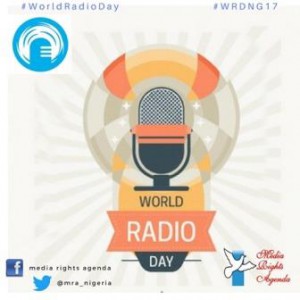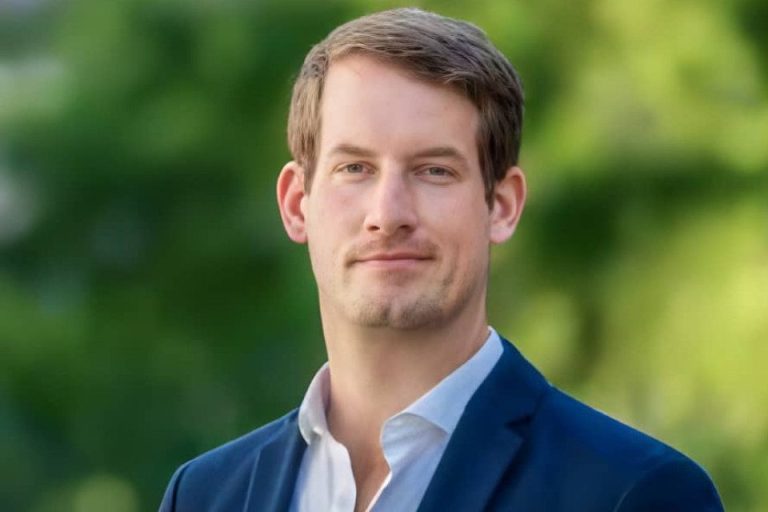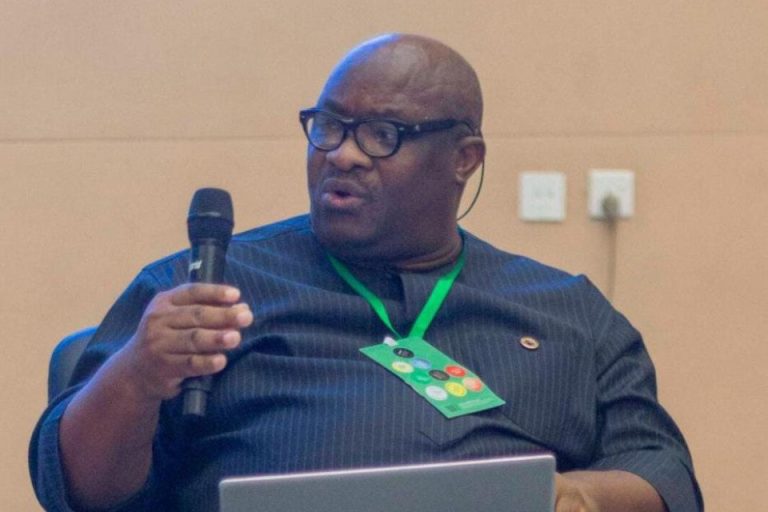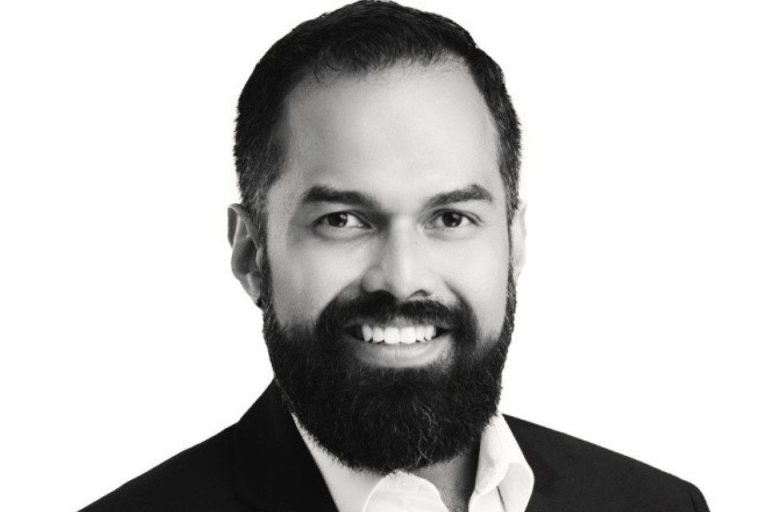LAGOS, February 13, 2017: On the occasion of the World Radio Day 2017, Media Rights Agenda (MRA) is calling on the government, regulatory bodies and other stakeholders to institute a package of support to the community radio sector in Nigeria to enable it flourish. It noted that there is an urgent need for support covering funding, programme development, management and governance as well as general capacity building to enable the sector achieve its full potential in Nigeria and realize its role.
In a statement in Lagos, Mr. Edetaen Ojo, Executive Director of MRA, noted that: “Radio remains the most popular and cheapest means of information dissemination even in the digital age. Unfortunately, inappropriate policies and other challenges are standing in the way of the full realization of the potential of radio, particularly community radio which has the greatest possibility for making the theme of this year’s celebration, “Radio is You”, a reality.
He observed that almost two years after the issuance of 17 licences for community radio operations, the vast majority of them, besides the Lavun Community Radio in Kutigi, Niger State, had not been able to get their operations off the ground. He stressed that the situation is indicative of a significant policy or regulatory distortion which needs to be addressed urgently.
MRA said it was regrettable that community radio, the third tier of broadcasting, is unfortunately still stunted in Nigeria while it is growing and flourishing throughout the West African sub-region as well as in other parts of the world.
Community radio, according to MRA is unique in a number of ways including informing people on what is going on in the communities where they live; broadcasting in the languages of the communities; involvement of everyone in the station’s programmes; the promotion of economic growth; and the preservation of local culture and traditions among others.
MRA criticised the regulatory framework for the broadcast sector in Nigeria, noting that the criteria and processes for obtaining broadcast licences are still shrouded in secrecy and pointlessly tied to the approval of the President. The group noted that this had contributed to stifling the growth of community radio stations in Nigeria, including commercial radio station.
The situation, MRA said, “was not allowing Nigerians to take full advantage of the potential of community radios.” He therefore called on the government to make the environment conducive for the acquisition and operation of community radio in Nigeria.
Mr. Ojo advocated the overhaul of the legal regime governing the award of broadcast licences in Nigeria, saying: “Government should recognize the third tier of broadcasting, community radio, as a very important tier. It is the tier of broadcasting that gives voice to the community and the community ownership structure of community radio ensures it is sustainable.”
He reminded the Nigerian authorities that community radio fosters unity and oneness, calling its attention to the statement of Tim Francis, Associate Programme Specialist for Media Development and Society at UNESCO, who has said: “At a time when many are pointing to a breakdown in civil, constructive discussion, and when the very idea of truth is increasingly being called into question, radio is uniquely-positioned to bring communities together and foster positive dialogue for change.”
The UNESCO’s 36th General Conference of November 3, 2011 proclaimed February 13 the World Radio Day, to remember the unique power of radio to touch lives and bring people together across every corner of the globe. The commemoration of the World Radio Day was originally proposed by the Kingdom of Spain. February 13 was chosen to coincide with the anniversary of the day the United Nations established United Nations Radio in 1946.





